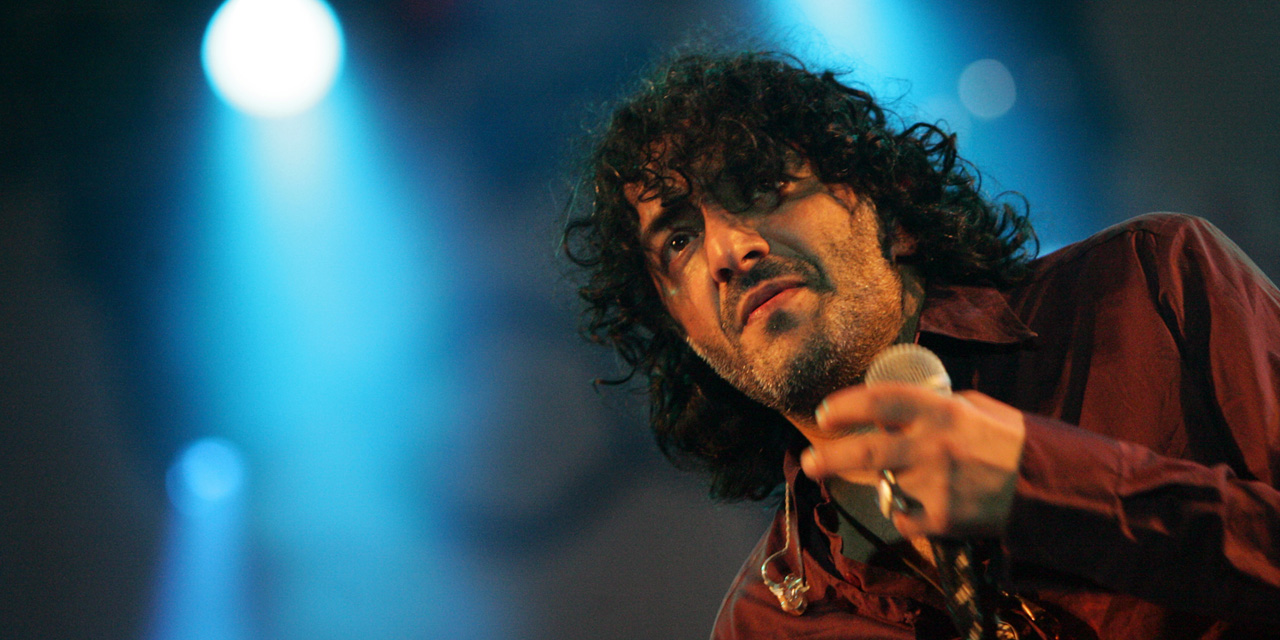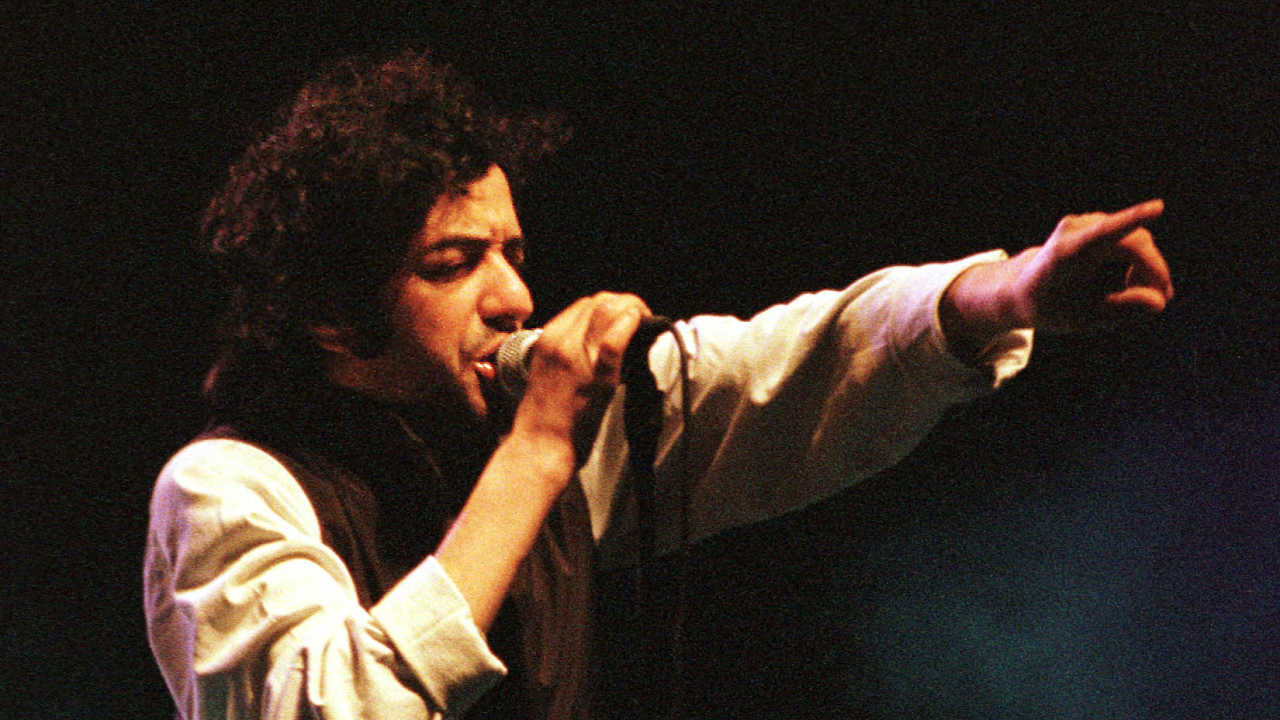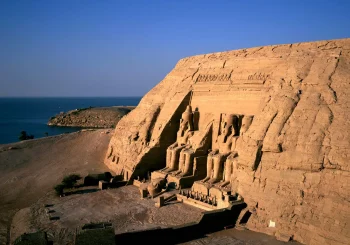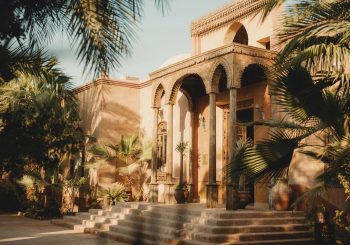
Immigrants do not just travel with their bodies, but also with their hearts, minds and spirits. Everyday, it feels like they are trying to reach out to hold on to something real – to hold onto a piece of land that is not fictional or imaginary, but grounds them and pulls them into the vibrations of life.
It’s true that not everyone has the same experience, but it’s also a fact that many still do silently – without anyone or anything to ever hold onto. They remain trapped in foreign lands as though they’ve made a pact with the devil: they can either stay while feeling foreign or go back and still feel hungry for opportunities.
While immigration has existed for centuries, it has always been redefined for generations that have lived the aftermaths of new historical events, such as colonialism, wars and globalization. An Arabic song that continues to redefine the meaning of immigration is the Algerian chaâbi classic, ‘Ya Rayah’, which was originally released by Amrani Abderrahmane in 1973, and then was later brought to life to a new generation of North Africans and Arabs in the 1990s by Algerian singer Rachid Taha.
Whenever I think of Rachid Taha, I remember quite clearly the first time I heard of him. My father and I were sitting in a coffee shop during a holiday in Egypt many years ago, and then the song ‘Abdel Kader’ by the trio Cheb Khaled, Rachid Taha and Faudel started playing, followed by the iconic song ‘Aicha’ by Cheb Khaled. The music seemed inherently nostalgic even though I didn’t recognize or remember it at first, but what made me instantly connect to it is the interesting fusion of different languages, modern beats and instruments.
It sounded like nothing of the Arabic music I usually heard my family listen to. Instead, and for the first time, it sounded like Arabic music that my generation would listen to. For a North African and Arab generation that witnessed globalization and immigration or constant travel, I never came across music from our region that truly provided a voice, a language, and an expression for our identity and experiences.

After searching through their discography to find more music, the most interesting one I found was Rachid Taha’s collection. I remember seeing articles on the Internet with titles, ‘Algerian Roots, American Rock n’ Roll’, next to an image of Taha that mirrored an ‘edgy American look’. “He sings in Arabic, but his music is as apt to channel The Rolling Stones or The Ramones as any other source,” the article read.
He was always branded as an artist that ‘mixes’ or merges two different worlds together – producing a mashed up version of one form of music or genre. He is an artist with ‘Algerian roots’, but with an ‘American style’. His identity was never really explored at a deeper level, and his Algerian roots were mentioned as though it was merely a stamp on an envelope.
Yet when I listened to more of his music, I never felt any of that. I didn’t feel the mixedness, the twists or the distortedness. I didn’t feel that he was trying to imitate an American style, or even borrow from any kind of foreign style.
While people always branded him as a ‘borrower’ of others’ cultures, as someone who simply imitates an ‘American’ or ‘European’ sound, I saw him as a unified whole. I listened to his songs as though I was listening to my own cultural music for the very first time. It transcended the stereotypes I held of any nation and simply brought to me an expression of a human experience – of immigration, travel, and finding home.
There can be many different interpretations to the song ‘Ya Rayah’, and while others may not understand it completely, I immediately understood it when I first listened to it. For our generation, I don’t think Taha was speaking to immigrants who had to leave their countries due to exclusion or force, but he was also speaking to those who are striving to escape their own homeland to find ‘a better home’ – a better life.
From afar, the world can look as though it is collectively ours – that it is a home for all of us and that we have every freedom, and every right to travel to any continent or any place and call it home. Yet when we look deeper, and actually travel to these places, we are reminded that the world was never ours – as humans- to begin with. It was with governments, with leaders, with groups and parties and institutions that do not welcome everyone equally and fairly.
We are reminded that ‘selling’ ourselves to these institutions is a kiss of death; a contract you sign with a devil in exchange for material gain. But as Taha sings in the song, what is truly in our interest before we sell or buy? How much disappointment, hurt and pain are we willing to experience in exchange for more money? Or did we simply compare the empty deserts of our homeland with the skyscrapers of other more developed countries?
But it is society’s fault before it is the immigrant’s fault, as the song explains. Wherever we turn, and wherever we go, it was never the society that welcomed us, but it was the illusion we created in order to continue living and surviving.
Ya Rayah’s Translation:
Oh traveler, where are you traveling to?
Haven’t you noticed how the poor people have regretted this decision before you and I did?
How society failed, before you and me
Or did you just compare the empty desert of your home country with developed places?
How much time did you waste, and how much are you still wasting?
Oh traveler who lives in other people’s land, you’re troubling yourself, and you’ll get exhausted
Do you have a strong will, or you just don’t know?
Oh traveler, where are you traveling to?
Haven’t you noticed how the poor people have regretted this decision before you and I did?
Why is your heart so sad? Why is that? Or is it because this is the only choice for the poor?
Your patience probably won’t last, and if you spend more time(abroad)and discovered that, write me(a letter)
Days do not last, and my youth and yours won’t last, too
Poor is the person who was disappointed, like he/she lost in throwing a dice and was not lucky.
Oh traveler, where are you traveling to?
Haven’t you noticed how the poor people have regretted this decision before you and I did?
Oh traveler, I’ll give you an advice, take it quickly,
See what is good for you before you buy and sell
Oh you (foolish) sleeper I was told what has happened to you,what happened to has happened to me before
That was the will of God, praise be to Him.






Comments (4)
[…] أغنية “يا راية” لرشيد طه: صوت للمهاجرين […]
[…] Rachid Taha's Song 'Ya Rayah': A Voice for Immigrants […]